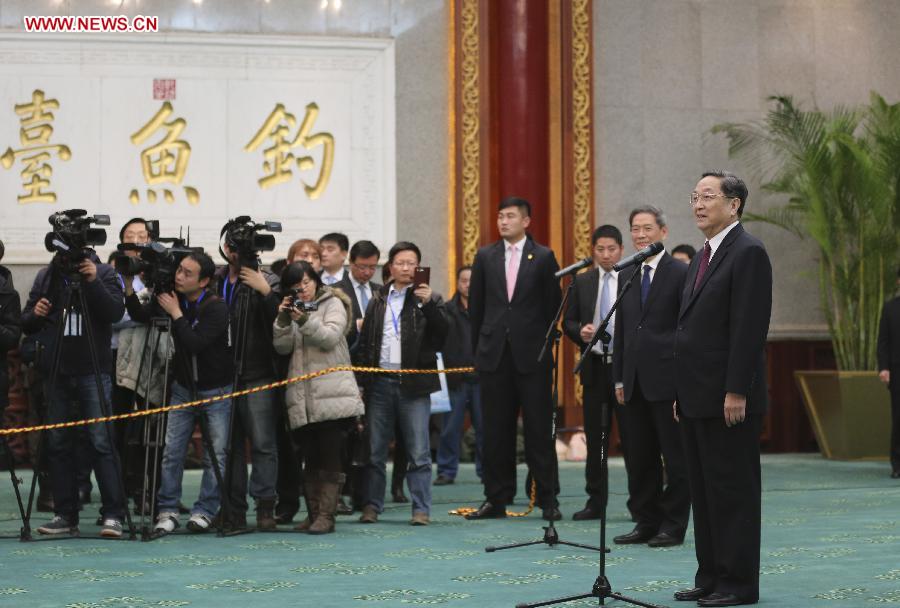 |
| Yu Zhengsheng (R), chairman of the National Committee of the Chinese People's Political Consultative Conference (CPPCC), meets with media representatives attending a cross-Strait press forum in Beijing, capital of China, Dec. 22, 2013. (Xinhua/Ding Lin) |
BEIJING, Dec. 22 -- Media organizations from the Chinese mainland and Taiwan on Sunday pledged to increase the global competitiveness of Chinese press through deepened cooperation and increased exchanges.
Media organizations attending a cross-Strait press forum said in a joint proposal that their reports will reflect the mainstream public opinion on both sides of the Taiwan Strait and they will create a media atmosphere conducive to cross-Strait peaceful development.
Yu Zhengsheng, chairman of the National Committee of the Chinese People's Political Consultative Conference, spoke highly of the media's role in improving cross-Strait relations and increasing mutual understanding of people on both sides of the Taiwan Strait.
He called on media organizations from the mainland and Taiwan to strengthen communication and cooperation and fulfill their social responsibilities.
The forum, attended by representatives from 70 newspapers, news agencies, television and radio stations, was sponsored by China Central Television.
According to the proposal, which was released after the forum, media organizations pushed for the exchange of media's permanent offices on both sides of the Taiwan Strait and the establishment of a friendship association that will serve as a platform for regular media exchange.
The press also promised to embrace innovation and further cooperation in the spheres of new media.
During the forum, the Chinese mainland's chief of Taiwan affairs office called on the media to post more "positive and objective" reports and pool "positive energy" to boost the peaceful development of cross-Strait relations.
Zhang Zhijun, director of the Taiwan Work Office of the Communist Party of China Central Committee, urged the press to seek common points while reserving differences and give more coverage to traditional Chinese culture.
Zhang, also director of the Taiwan Affairs Office of the State Council,said the mainland will adhere to its fundamental policies toward Taiwan and comprehensively promote the peaceful development of cross-Strait relations.
Nie Chenxi, deputy director of the State General Administration of Press, Publication, Radio, Film and Television, encouraged press from both sides of the Taiwan Strait to increase dialogue and cope with challenges brought about by the ongoing information technology revolution.
Speaking on behalf of the event sponsor, CCTV president Hu Zhanfan advocated the exchange of permanent offices for media organizations and "pragmatic collaborations" on programs, advertisements and academic cooperation.
Hu also proposed joint promotion of Chinese culture and cooperation in new media.
 |

 Rime scenery in Mount Huangshan
Rime scenery in Mount Huangshan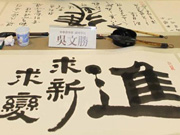 'Jin' named the word of the year by cross-strait netizens
'Jin' named the word of the year by cross-strait netizens PLA elite units unveiled
PLA elite units unveiled 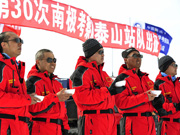 Chinese scientific expedition goes to build new Antarctica station
Chinese scientific expedition goes to build new Antarctica station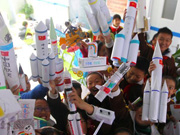 Record of Chinese expressions in 2013
Record of Chinese expressions in 2013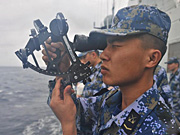 Chinese naval escort fleet conducts replenishment in Indian Ocean
Chinese naval escort fleet conducts replenishment in Indian Ocean Weekly Sports Photos
Weekly Sports Photos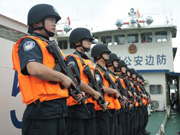 17th joint patrol of Mekong River to start
17th joint patrol of Mekong River to start Spring City Kunming witnesses snowfall
Spring City Kunming witnesses snowfall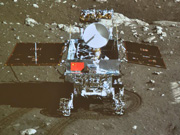 China's moon rover, lander photograph each other
China's moon rover, lander photograph each other Beijing tenants
Beijing tenants 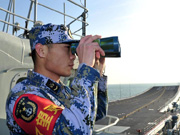 China's aircraft carrier carrys out 1st docking manoeuver in Sanya
China's aircraft carrier carrys out 1st docking manoeuver in Sanya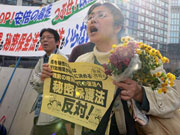 Japanese stage protest against secrecy bill
Japanese stage protest against secrecy bill
Day|Week|Month